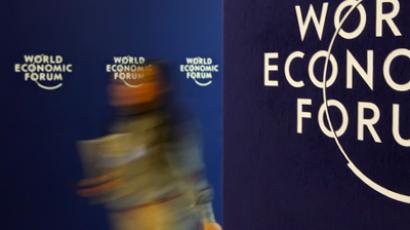‘EU crisis entering chronic phase’
Monday's EU summit saw the Czech Republic become the second state to pull out of the budget discipline pact. But with the European Central Bank's mint working flat out, the EU crisis is still deepening, says analyst Johan Van Overtveldt.
The first EU summit of 2012, which yet again focused on the financial crisis in the region, gave the crucial go-ahead to for German fiscal rule to limit the size of member countries’ spending. The UK had already bowed out of the pact in December. In a surprise move, the Czech Republic this week became the second country to pull back from the agreement, bringing the number of signees to 25 out of 27. French President Nicolas Sarkozy, already at loggerheads with UK PM David Cameron over London’s reluctance to join the pact, was left bewildered by the Czech decision."I'm not sufficiently familiar with the ins and outs of what is going on in Prague to be able to understand why what was acceptable in December is no longer acceptable now," said Sarkozy.At the same time, Poland and other Eastern European countries demanded full inclusion in the annual eurozone summits stipulated in the new fiscal agreement. Otherwise, Warsaw threatened to drop the budget initiative altogether.To analysts, the fiscal compact, which provides tough debt rules and fines for those who disobey, still looks somewhat vague. “There is explicit reference to the role to be played by the EU Court of Justice, but how it should be done and what exactly the powers of that court will be, is quite unclear at the moment. Other issues are also open: is the compact really so biting and is it so binding? The answer to this question rather seems to be ‘No,’” says Johan Van Overtveldt, the editor-in-chief of the leading Belgian business magazines, Trends and Knack. The EU summit, pledging to create jobs and agreeing to set up a permanent bailout fund for struggling members, pushed the euro and stocks up. But if some were looking to the meeting to produce a definite decision on Greece, what they got was the now-familiar forced optimism: “Things are going ahead in the right direction.” Germany’s Chancellor Angela Merkel said the EU cannot afford to deliberate, while the troika of the EU, International Monetary Fund and European Central Bank monitors is still looking into the current state of the struggling economy.Meanwhile, European leaders might have to confront the necessity of reassessing their strategy if they are to deal effectively with the eurozone crisis, as the situation evolves. “The crisis is changing from the acute phase to the chronic phase, where a very important role is played by the European Central Bank (ECB),” Johan Van Overtveldt told RT.“The ECB in recent weeks has been creating money at a very rapid rate to make sure banks have enough funding. The second round of long term financing the ECB will make available to the banks in a few weeks will be much larger than the initial amount. This might be the ECB’s indirect way to finance sovereign debt of countries with problems as Greece. The longer this process takes, the more risks you start to take and the more the ECB’s stability is jeopardized. This means jeopardizing the stability of the whole EU economy.”














